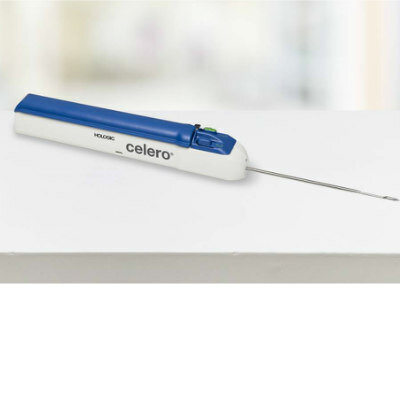Vaginal Fluid Transplantation Could Treat Intractable Vaginosis
|
By HospiMedica International staff writers Posted on 26 Oct 2019 |
Vaginal microbiome transplantation (VMT) from a healthy donor to women with recurrent bacterial vaginosis could restore the microbiome, claims a new study.
Researchers at the Hebrew University (HUJI; Jerusalem, Israel), Hadassah Medical Center (Jerusalem, Israel), the Weizmann Institute of Science (Rehovot, Israel), and other institutions conducted a case series study of five women (27-47 years of age) suffering from symptomatic, intractable, and recurrent bacterial vaginosis. The women were all on continuous antibiotics. Prior to VMT, the women were asked to stop antibiotics they were on, and were provided with a vaginal antibiotic cream to be applied regularly. Healthy vaginal fluids from three healthy women donors were then collected and transferred.
Donor women were asked to abstain from sexual intercourse for at least a week before the donation, and the recipient women were put on birth control, to prevent unwanted contraception. The results of VMT revealed that four of the women underwent full long-term remission; three of them necessitated repeat VMT, including a donor change in one patient, to elicit a long-standing clinical response. One patient presented with incomplete remission in clinical and laboratory features, and no adverse effects were observed in any of the five women. The study was published on October 7, 2019, in Nature.
“With this friendly microbiome takeover, symptoms and complications associated with bacterial vaginosis rapidly subside,” said senior author Professor Eran Elinav, PhD, of the Weizmann Institute of Science department of immunology. “By introducing this new treatment approach, we hope that we may come a step closer to providing an affordable solution for the very many millions of women across the world that suffer with this disorder.”
Bacterial vaginosis is a common condition that affects one in three women of the reproductive age and usually occurs when the balance between healthy and harmful bacteria is tipped towards the latter, with a sharp fall in the number of healthy lactobacilli. It is commonly associated with a discharge that smells foul and fishy. While not life threatening, it may increase vulnerability to sexually transmitted infections (STIs), lead to infertility, and may cause complications in pregnant woman. In most cases, antibiotics are prescribed, but the rate of recurrence is high.
Related Links:
Hebrew University
Hadassah Medical Center
Weizmann Institute of Science
Researchers at the Hebrew University (HUJI; Jerusalem, Israel), Hadassah Medical Center (Jerusalem, Israel), the Weizmann Institute of Science (Rehovot, Israel), and other institutions conducted a case series study of five women (27-47 years of age) suffering from symptomatic, intractable, and recurrent bacterial vaginosis. The women were all on continuous antibiotics. Prior to VMT, the women were asked to stop antibiotics they were on, and were provided with a vaginal antibiotic cream to be applied regularly. Healthy vaginal fluids from three healthy women donors were then collected and transferred.
Donor women were asked to abstain from sexual intercourse for at least a week before the donation, and the recipient women were put on birth control, to prevent unwanted contraception. The results of VMT revealed that four of the women underwent full long-term remission; three of them necessitated repeat VMT, including a donor change in one patient, to elicit a long-standing clinical response. One patient presented with incomplete remission in clinical and laboratory features, and no adverse effects were observed in any of the five women. The study was published on October 7, 2019, in Nature.
“With this friendly microbiome takeover, symptoms and complications associated with bacterial vaginosis rapidly subside,” said senior author Professor Eran Elinav, PhD, of the Weizmann Institute of Science department of immunology. “By introducing this new treatment approach, we hope that we may come a step closer to providing an affordable solution for the very many millions of women across the world that suffer with this disorder.”
Bacterial vaginosis is a common condition that affects one in three women of the reproductive age and usually occurs when the balance between healthy and harmful bacteria is tipped towards the latter, with a sharp fall in the number of healthy lactobacilli. It is commonly associated with a discharge that smells foul and fishy. While not life threatening, it may increase vulnerability to sexually transmitted infections (STIs), lead to infertility, and may cause complications in pregnant woman. In most cases, antibiotics are prescribed, but the rate of recurrence is high.
Related Links:
Hebrew University
Hadassah Medical Center
Weizmann Institute of Science
Latest Patient Care News
- Portable Biosensor Platform to Reduce Hospital-Acquired Infections
- First-Of-Its-Kind Portable Germicidal Light Technology Disinfects High-Touch Clinical Surfaces in Seconds
- Surgical Capacity Optimization Solution Helps Hospitals Boost OR Utilization

- Game-Changing Innovation in Surgical Instrument Sterilization Significantly Improves OR Throughput
- Next Gen ICU Bed to Help Address Complex Critical Care Needs
- Groundbreaking AI-Powered UV-C Disinfection Technology Redefines Infection Control Landscape
- Clean Hospitals Can Reduce Antibiotic Resistance, Save Lives
- Smart Hospital Beds Improve Accuracy of Medical Diagnosis
- New Fast Endoscope Drying System Improves Productivity and Traceability
- World’s First Automated Endoscope Cleaner Fights Antimicrobial Resistance
- Portable High-Capacity Digital Stretcher Scales Provide Precision Weighing for Patients in ER
- Portable Clinical Scale with Remote Indicator Allows for Flexible Patient Weighing Use
- Innovative and Highly Customizable Medical Carts Offer Unlimited Configuration Possibilities
- Biomolecular Wound Healing Film Adheres to Sensitive Tissue and Releases Active Ingredients
- Wearable Health Tech Could Measure Gases Released From Skin to Monitor Metabolic Diseases
- Wearable Cardioverter Defibrillator System Protects Patients at Risk of Sudden Cardiac Arrest
Channels
Critical Care
view channel
Ingestible Smart Capsule for Chemical Sensing in the Gut Moves Closer to Market
Intestinal gases are associated with several health conditions, including colon cancer, irritable bowel syndrome, and inflammatory bowel disease, and they have the potential to serve as crucial biomarkers... Read moreNovel Cannula Delivery System Enables Targeted Delivery of Imaging Agents and Drugs
Multiphoton microscopy has become an invaluable tool in neuroscience, allowing researchers to observe brain activity in real time with high-resolution imaging. A crucial aspect of many multiphoton microscopy... Read more
Novel Intrabronchial Method Delivers Cell Therapies in Critically Ill Patients on External Lung Support
Until now, administering cell therapies to patients on extracorporeal membrane oxygenation (ECMO)—a life-support system typically used for severe lung failure—has been nearly impossible.... Read moreSurgical Techniques
view channel
Pioneering Sutureless Coronary Bypass Technology to Eliminate Open-Chest Procedures
In patients with coronary artery disease, certain blood vessels may be narrowed or blocked, requiring a stent or a bypass (also known as diversion) to restore blood flow to the heart. Bypass surgeries... Read more
Intravascular Imaging for Guiding Stent Implantation Ensures Safer Stenting Procedures
Patients diagnosed with coronary artery disease, which is caused by plaque accumulation within the arteries leading to chest pain, shortness of breath, and potential heart attacks, frequently undergo percutaneous... Read more
World's First AI Surgical Guidance Platform Allows Surgeons to Measure Success in Real-Time
Surgeons have always faced challenges in measuring their progress toward surgical goals during procedures. Traditionally, obtaining measurements required stepping out of the sterile environment to perform... Read moreHealth IT
view channel
Printable Molecule-Selective Nanoparticles Enable Mass Production of Wearable Biosensors
The future of medicine is likely to focus on the personalization of healthcare—understanding exactly what an individual requires and delivering the appropriate combination of nutrients, metabolites, and... Read more
Smartwatches Could Detect Congestive Heart Failure
Diagnosing congestive heart failure (CHF) typically requires expensive and time-consuming imaging techniques like echocardiography, also known as cardiac ultrasound. Previously, detecting CHF by analyzing... Read moreBusiness
view channel
Expanded Collaboration to Transform OR Technology Through AI and Automation
The expansion of an existing collaboration between three leading companies aims to develop artificial intelligence (AI)-driven solutions for smart operating rooms with sophisticated monitoring and automation.... Read more

















